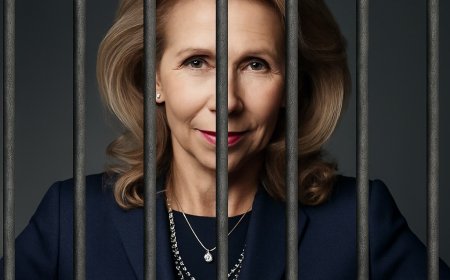Britain’s Biggest Untapped Oilfield Put on Hold as Climate Rules Bite

Britain’s largest undeveloped oilfield has been thrown into limbo. Equinor’s Rosebank project, a $3.8 billion investment once known as the future backbone of UK energy security, has been suspended after regulators demanded new environmental approvals that account for the full carbon footprint of the oil and gas it would produce. What was supposed to be a flagship development on the UK Continental Shelf has instead become the clearest example yet of how legal challenges and climate politics are reshaping the fate of offshore hydrocarbons.
Rosebank, discovered in 2004, lies 130 kilometers northwest of Shetland in deep waters close to the Faroe Islands border. Containing an estimated 336 million barrels of oil equivalent, split between 210 million barrels of oil and 177 billion cubic feet of gas, it is the largest untapped field in UK waters. Operated by Equinor, with Ithaca Energy as a minority partner, Rosebank was expected to peak at about 70,000 b/d and 1.8 million m3/d before gradually declining. At full tilt, the project could have covered as much as 7% of domestic oil demand in the UK. For a country facing a steep decline in domestic production, the project promised both a lifeline for energy security and hundreds of skilled jobs.
Instead, a 2024 ruling by Scotland’s Court of Session transformed Rosebank into a battleground. The court determined that Environmental Impact Assessments must account not only for direct emissions from operations but also for the downstream emissions created when oil and gas are ultimately burned. The Offshore Petroleum Regulator for Environment and Decommissioning responded by ordering Equinor to resubmit Rosebank’s Environmental Statement under these expanded terms, halting the project just as it neared a final investment decision.
Development drilling at Rosebank, originally planned for the second quarter of 2025, has been postponed to early 2026 after the intervention of UK’s Offshore Petroleum Regulator for Environment and Decommissioning (OPRED). In a formal letter dated July 21, 2025, the regulator instructed Equinor to resubmit the project’s Environmental Statement, this time incorporating downstream Scope 3 emissions in line with new government guidance published a month earlier. Until this revised assessment is filed and approved, no drilling can move forward. Equinor has indicated it will submit the updated documents within 2025, but new consent is not expected before 2026 – a shift that may delay the field’s onstream date beyond the current 2026-27 target.
The suspension highlights how quickly the regulatory goalposts can shift. For Equinor, it means no oil or gas can flow until new consent is granted. For investors, it signals that the UK North Sea — once among the most stable offshore provinces — has become a top-risk destination to deploy capital. And for environmental groups, the precedent provides a powerful new tool to contest future developments, effectively rewriting the rules for the basin.
The timing could hardly be more consequential. UK oil production has already been declining in last years, from 1.1 million b/d in January 2020 to 570 kb/d in July 2025, hitting the lower bounds of its five-year range in recent months. The country is now a net importer, increasingly exposed to global price swings and geopolitical shocks. Supporters of Rosebank warn that suspending the field accelerates this trend, discourages investment, and increases reliance on overseas supply. Opponents counter that halting the project is necessary if Britain is to meet its net-zero targets, arguing that approving Rosebank would lock in fossil fuel use for decades and undermine the country’s climate commitments.
Adding another layer to the debate is the quality of Rosebank’s output. What is particularly striking is that Rosebank would yield a very high-quality oil, as opposed to other untapped UK projects that generally tend to tilt towards heavier crude. Cambo, for instance, located only a couple of miles to the south of Rosebank, has been in the crosshairs of climate activists who argued that the field’s heavy viscous oil (22-23 API) would be particularly damaging to the environment. That argument cannot be really made vis-à-vis Rosebank, with a 35 API gravity and barely any sulphur.
The uncertainty over Rosebank also comes as Equinor and Shell reshape their UK portfolios. The two companies are merging their offshore businesses under a new joint venture, Adura, which will become the country’s largest independent oil and gas producer. Announced in late 2024 and set to be completed at the end of 2025, the merger will be shared 50/50 between the partners. Equinor has framed the move as a way to reduce risk exposure while gaining scale, with Adura expected to rank as the UK’s second-largest producer after Harbour Energy. The new entity is designed to be more agile, cost-competitive, and better positioned to extend the life of existing fields — a strategy that underscores the tension between bolstering energy security and navigating stricter climate regulation.
The battle over Rosebank is more than a dispute over one oilfield. It captures the core dilemma of Britain’s energy transition: how to maintain a reliable supply while advancing aggressive decarbonization goals. Its outcome will shape not only the trajectory of the UK’s offshore industry but also its credibility as a place to invest in long-term energy projects. Whether Rosebank is revived or left on the shelf will send a signal far beyond Shetland — about how the UK intends to manage the most difficult trade-offs of its energy future.
By Natalia Katona for Oilprice.com









































